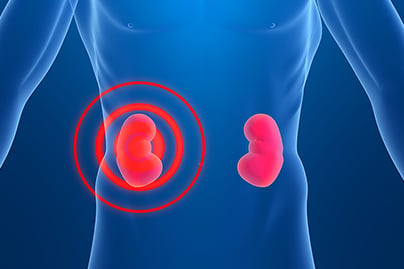Recipes
The kidneys are important regulatory organs that filter and excrete harmful or excessive substances from the body. Kidneys are very sensitive to toxins, poor nutrition, medications, and dehydration. With the rise in chronic diseases, such as high blood pressure and diabetes, the risk of kidney disease has increased. A Nutritarian diet is key to protect against and improve renal function in affected patients.

Kidney failure is divided into acute and chronic failure. Acute renal failure occurs when lab work demonstrates a sudden decline in kidney function. If this persists for greater than three months, a patient is then diagnosed as having chronic renal failure. In the Third National Health and Nutrition Examination Survey, the prevalence of chronic kidney disease among American adults was 11% or 19.2 million people. Diabetes and hypertension were the main causes of chronic kidney disease.1 It is important to prevent the progression of chronic kidney disease to end stage renal disease where dialysis or kidney transplantation is required.
Symptoms of acute renal failure include excretion of a lower volume of urine, swelling of extremities, fatigue, blood in the urine, weakness, fatigue, nausea, vomiting, confusion, drowsiness, seizures, and can be fatal. Chronic kidney disease may not be associated with symptoms initially; however, if the disease progresses, patients may experience persistent swelling of extremities, fatigue, anemia, and elevated blood pressure.
The potential causes of kidney failure include:
Although patients on dialysis have end organ damage, which cannot be reversed, they can improve quality of life and reduce the burden of diabetes and atherosclerosis with a Nutritarian diet that is specifically designed to be low in potassium and phosphate.
Acute renal failure is an urgent diagnosis that requires work up by your physician and cannot be treated by nutrition alone.
ONLINE: All members of DrFuhrman.com can search the Ask the Doctor archives for discussions on this topic. Platinum and Diamond members can connect with Dr. Fuhrman by posting questions in the forum. Not a member? Join now.
IN PERSON: Book a stay at Dr. Fuhrman’s Eat to Live Retreat in Southern California. With options ranging from one, two and three months (and sometimes longer) you will be under Dr. Fuhrman’s direct medical supervision as you hit the “reset” button on your health. For more information: (949) 432-6295 or info@ETLRetreat.com.
EVENTS: Join Dr. Fuhrman for an online boot camp, detox or other event. During these immersive online events, you’ll attend zoom lectures, follow a special meal plan, and have access to a special, live Q&A session with Dr. Fuhrman. Learn more about events.
The following are sample questions from the Ask the Doctor Community Platinum and higher members can post their health questions directly to Dr. Fuhrman. (All members can browse questions and answers.)
I have kidney disease and it was recommended that I eat a diet low in potassium. What foods should I specifically avoid? Can I still follow a Nutritarian diet?
Yes, you can still follow a Nutritarian diet. We have a lower potassium Nutritarian diet made for patients with renal disease, plus your potassium can be followed by your physician and you can ingest fibers that bind potassium if needed.
A Low Potassium Diet for kidney disease can be found within the Ask the Doctor community in the discussion: Low potassium diet for kidney disease.